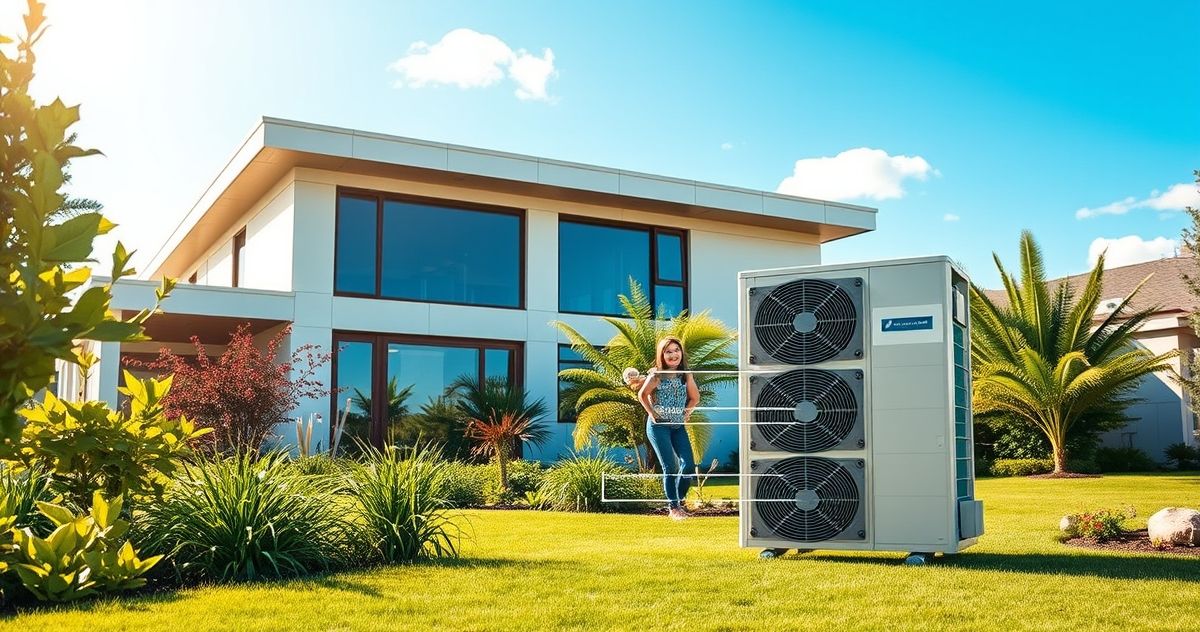Electric Heat Pump Tax Credit
What is it?
The Electric Heat Pump Tax Credit is a financial incentive provided by the government to encourage homeowners to upgrade their heating and cooling systems for better energy efficiency. This credit specifically targets the installation of electric heat pumps, which are devices that transfer heat from one place to another, optimizing energy use in homes.
Primary Purpose
The primary purpose of the Electric Heat Pump Tax Credit is to promote the adoption of environmentally friendly and energy-efficient technologies in residential settings. By subsidizing the cost of installation through tax credits, the government aims to reduce the reliance on traditional, less efficient heating systems, thereby decreasing greenhouse gas emissions and promoting sustainable energy consumption.
Key Features
- Financial Incentives: The tax credit offers a percentage of the installation cost back to the homeowner, effectively reducing the upfront financial burden.
- Encouragement of Eco-Friendly Choices: By providing financial benefits, the credit encourages homeowners to make environmentally conscious decisions regarding their home appliances.
- Reduction of Energy Costs: Electric heat pumps significantly lower heating and cooling costs over time due to their efficiency, and the tax credit helps offset initial costs.
Relevant Filing or Compliance Requirements
To qualify for the Electric Heat Pump Tax Credit, homeowners must meet specific eligibility criteria and follow compliance guidelines as set by the Internal Revenue Service (IRS). Here are the key steps:
- Eligibility Verification: The installed heat pump must meet energy efficiency standards as specified by the Department of Energy.
- Proper Documentation: Homeowners must keep receipts, energy efficiency certifications, and purchase documentation in case of a tax audit.
- Application During Tax Filing: Homeowners should complete the designated form (such as Form 5695 for Residential Energy Credits) when filing their federal tax return to claim the credit.
Failing to meet these requirements may result in the disqualification of the tax credit claim.
Penalties or Consequences for Non-Compliance
If homeowners do not comply with the guidelines set forth by the IRS, they risk losing the opportunity to claim the tax credit. Additionally, if claims are found to be inaccurate or fraudulent upon an IRS review, taxpayers may face penalties, including fines or increased scrutiny from the IRS, which could lead to audits or further investigation.
Importance and Significance
The Electric Heat Pump Tax Credit holds significant importance in the realms of tax resolution, financial planning, and environmental sustainability. Here’s why:
- Promoting Energy Efficiency: Encouraging modern, efficient heating solutions like electric heat pumps helps decrease national energy consumption and greenhouse gas emissions.
- Financial Relief: Offering a tax credit alleviates some of the financial burdens for homeowners making energy-saving upgrades, leading to longer-term savings from reduced energy bills.
- Encouraging Market Growth: Such incentives can drive demand, which may help in the innovation of more efficient technologies and reduction in equipment costs over time as more units are produced and adopted.
Overall, the Electric Heat Pump Tax Credit is a vital tool for promoting the transition to sustainable living practices through financial incentives. It allows homeowners to take proactive steps towards reducing their carbon footprint while simultaneously benefiting from economic incentives. By adhering to compliance requirements and making use of the credit, taxpayers can ensure not only significant savings on their energy bills but also contribute to broader environmental goals.
For homeowners considering upgrading their heating systems, consulting with a tax advisor is recommended to ensure all eligibility criteria are met and the credit is correctly applied during tax filing.

